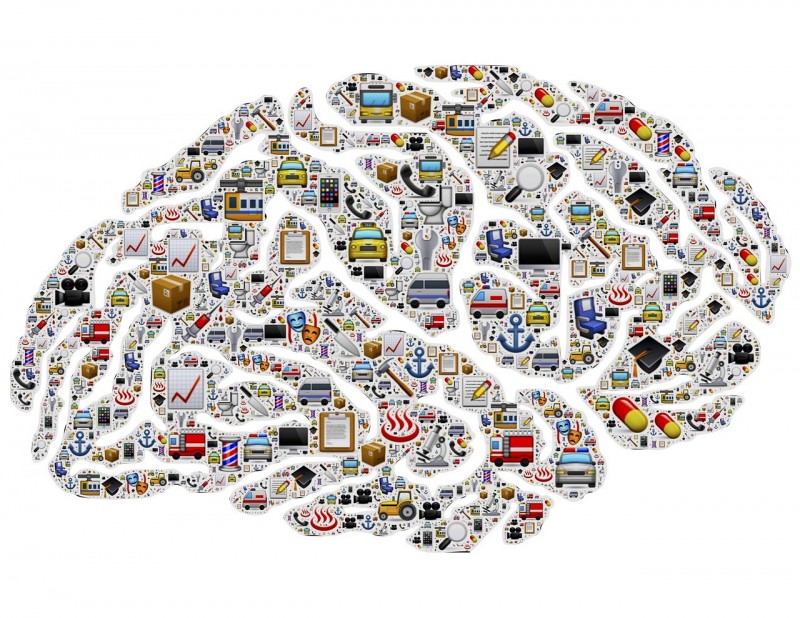First published on ARNI Institute for Stroke Rehabilitation website
A change in cognitive ability is common after a stroke. Did you know that as many as two-thirds of stroke survivors may experience cognitive impairment as a result of their stroke.? If this is you, or you know someone who seems possibly to be going through such difficulties, here’s 18 steps you can take to try and improve cognition difficulties after stroke:
First, what is cognition?
Put simply, cognition is thinking; it is the processing, organising and storing of information – an umbrella term for all of the mental processes used by your brain to carry you through the day, including perception, knowledge, problem-solving, judgement, language, and memory. The brain’s fantastic complexity means that it can collect vast amounts of information from your senses (sights, sounds, touch, etc) and combine it with stored information from your memory to create thoughts, guide physical actions, complete tasks and understand the world around you.
A stroke can affect the way your brain understands, organises and stores information. This brain injury can result in damage to the areas of the brain that are responsible for perception, memory, association, planning, concentration, etc. The severity and localisation of the stroke will effect the type and level of difficulties experienced by an individual, and will vary from person to person.
It can be difficult to plan and organise daily tasks. The brain is constantly working in the background, allowing us to complete a task based on prior knowledge, experience, and learned behaviour.
You don’t have to consciously think how to boil the kettle, change TV channels or put on your socks before your shoes: you just do it. But damage to the brain can result in problems with these planning and execution mechanisms.
You might not be able to think how to do a simple task, or you may get the sequence wrong (for example, shoes before socks). You might have trouble with orientation, which could include not knowing the date, day of the week, or even who you are with. Problem-solving too can become difficult. Making decisions, solving problems, understanding numbers and managing money can be a challenge.
Good cognitive function also relies on memory. The brain uses 2 types of memory to hold information, the long and short term memory. Short-term memory is the temporary store for small amounts of information. This information is kept readily available and can be recalled quickly. For example, a phone number can be remembered long enough for you to dial it. Long-term memory is where you keep your experiences, thoughts and feelings from the past and things stored here can be stored indefinitely. Memory problems could result in difficulty storing or recalling information. This could include problems remembering appointments, important dates or in the case of short term memory, what you were about to do, or what somebody just said to you.
Problems with concentration are common. Concentration is required for effective cognitive function, as many of your thinking process require concentration. Concentration requires our brain to filter out much of the information coming in from your conscious thinking, so you are not distracted by it.
Stroke can impact on this ability because of damage to the areas of the brain responsible for this, and also because tiredness, pain and emotional problems have an effect of the ability to stay focused and concentrate. This could result in difficulties when trying to follow a television programme, or conduct a conversation with a friend. Multi-tasking too is difficult.
18 Things to try
- Cognitive problems are confusing and frustrating. But, there are some things you can to do help. Most improvements occur in the first 3 months after a stroke, after which they slow down, but the brain will keep creating new neural pathways after this time.
- To help with memory and perception problems, try using a diary, day planner, calendar or notepad. Writing down appointments and creating to-do-lists can help you to remember them.
- Photos and pictures can help to ‘trigger’ your memory.
- Check your calendar, newspaper or diary to help you remember the day and date.
- Make notes of important conversations.
- Use notes, lists and labels around the house and help prompt you to remember. Mobile phones are a great resource. Set alarms, reminders and memos to remind you throughout the day.
- It is important not to overload yourself, finish one task before you start another. Plan your day and prioritise tasks.
- Try slowing the activity down, working through a step at a time.
- Keep instructions clear and short, no more than 5 or 6 words to a sentence, and only 1 or 2 instructions at a time.
- …
Please read the full list here.





